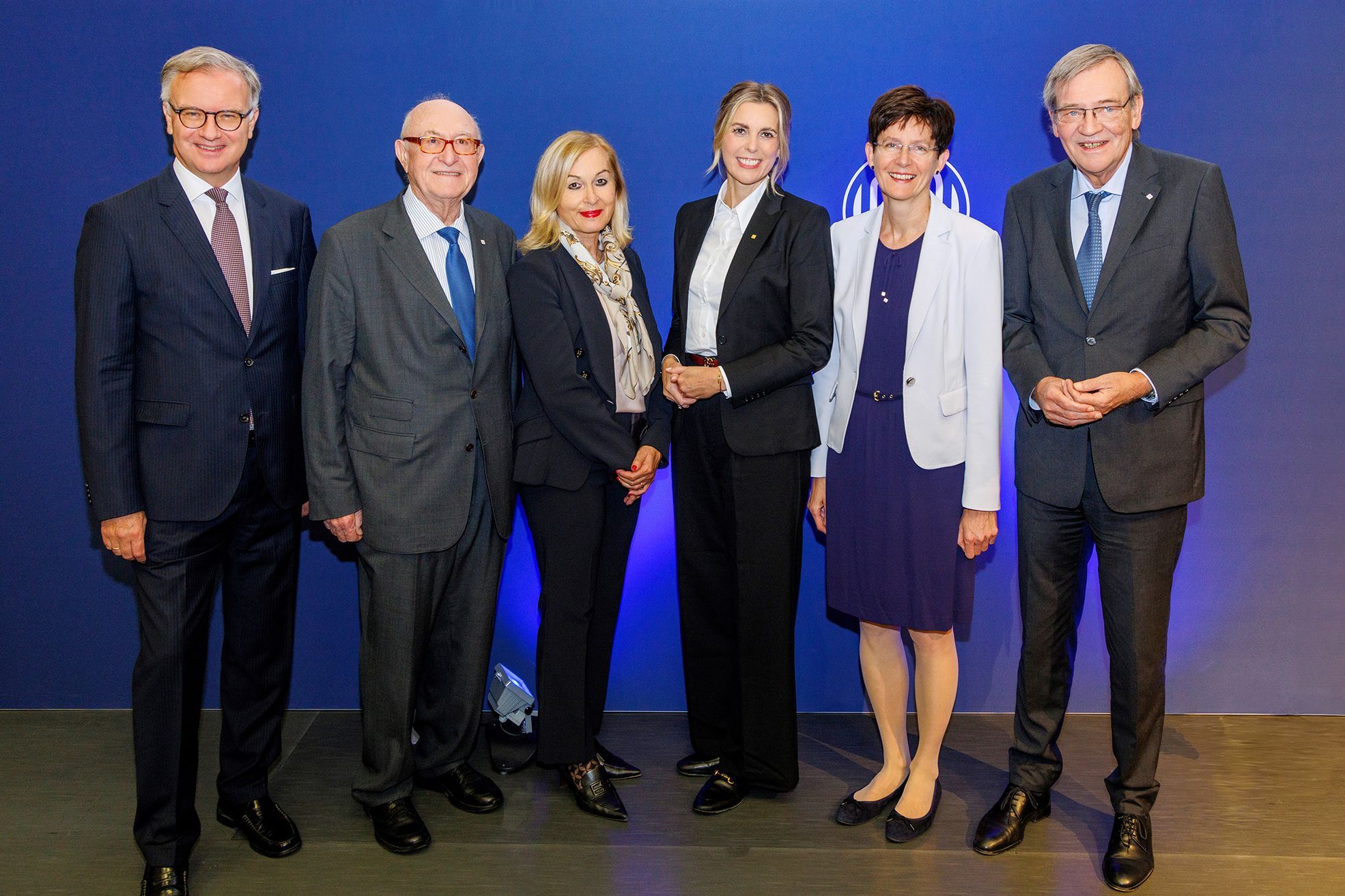
(Vienna, 03 October 2024) As part of her inaugural lecture, Sabine Pleschberger, new Professor of Nursing Science at the Center for Public Health at the Medical University of Vienna, presented her area of expertise and the current and future challenges facing this discipline. Under the title “Thinking nursing science in a transdisciplinary way”, she highlighted how the growing nursing crisis poses pressing questions for society - and that science is needed to provide answers.
Sabine Pleschberger emphasized that Austria, like many other countries, is facing a staffing crisis in the healthcare sector. “The gap between the growing need for care and the available human resources is widening,” says Pleschberger.
The association PflegerIn mit Herz is supporting the professorship with 1.5 million euros for a period of three years in order to find scientifically sound solutions to these challenges. After all, nursing care requires scientific expertise just as much as other areas of society do. “We support the endowed professorship out of the deepest conviction and are thus making our contribution to a sustainably efficient Austrian care system. For many years, we have made the outstanding achievements of people who care for those in need of care visible. Now we are looking ahead together: with science, research and teaching, we want to improve the situation for people in need of care, carers and relatives of people in need of care in Austria and make it fit for the future,” explains Robert Lasshofer, President of the ‘PflegerIn mit Herz’ association.
The difficulties of care as a science
The new professorship also sheds light on the delayed development in Austria and on a sore point: the difficulty of recognizing nursing as a science. For Pleschberger, one reason for this lies in the historical development of the nursing profession, which emerged in the 19th century as a medical assistant profession for women and has often retained this image in the public eye to this day. Another often neglected aspect is the social marginalization of people in need of care and dying people - a devaluation that also affects those who care for them, as Pleschberger explained: “Since the beginning of my professional and academic career, I have also used my research to combat the marginalization of the need for help and care.” This marginalization often becomes particularly apparent in the last phase of life, i.e. dying. The hospice movement and the concept of palliative care introduced by the WHO in 1990 were important reactions to these developments, a long-standing focus of the professor's research.
Solutions to the staffing crisis through transdisciplinary research
Ensuring high-quality care - both in the present and in the future - is Pleschberger's central concern within the framework of the endowed professorship. This includes researching solutions to the staffing crisis, which are multifaceted and require the interaction of professional and informal care as well as civil society. The topics of end-of-life care and the care of older people, particularly in the home environment, are the focus of her research, as it is precisely here that carers work under enormous pressure.
Pleschberger emphasized that the main aim of nursing science is to conduct research with nursing, not just about it. Transdisciplinary research, in which knowledge is developed together with practice, is a central approach that she wants to pursue in her work. “Nursing science is developing in a transitional phase of knowledge production. Knowledge must be created in the context of application, not in an ivory tower.” She is keen to engage in dialog with the professional community and wider society in order to bring the pressing issues of care and ageing further into society, because, according to Pleschberger: “The need for help and care as well as dying are part of life and affect us all.”